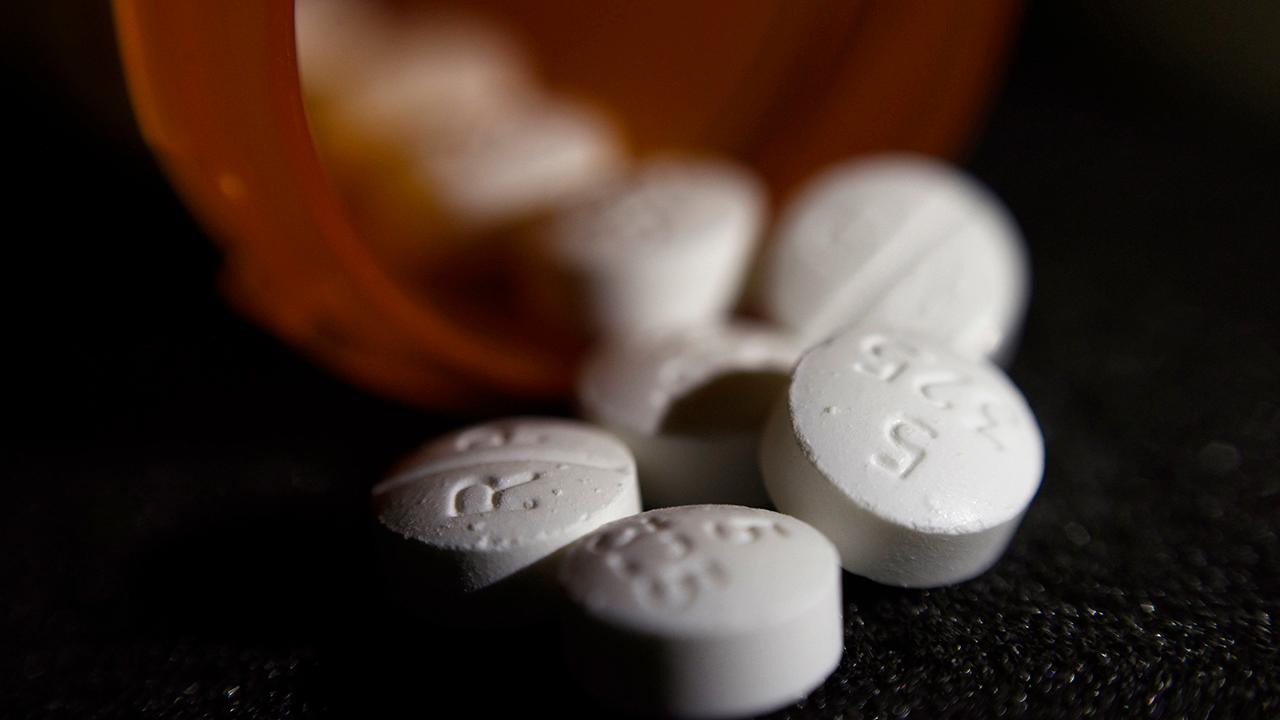[ad_1]
At least six patients at a cancer facility in New York were sickened with a rare blood infection after a nurse allegedly tampered with injectable opioids, diluting the medication with tap water.
Six patients at the Roswell Park Comprehensive Cancer Center in Buffalo, N.Y., were infected with a bacterium known as Sphingomonas paucimobilis between June and July of 2018, according to a New England Journal of Medicine report. Three of the six were diagnosed within one week of each other, it noted.
Sphingomonas paucimobilis is typically found in water and soil. It’s rarely known to cause blood infections, even in those with compromised immune systems, the report says.
UPPING CAFFEINE INTAKE COULD TRIGGER MIGRAINES, STUDY FINDS
Baffled, medical professionals at the facility initially assumed the infection was caused by contaminated medication. Officials subsequently contacted pharmaceutical vendors and checked with the U.S. The Food and Drug Administration (FDA) over recall alerts in an attempt to find a source of the outbreak.
Doctors then evaluated “intravenous fluids and medications” including syringes of the opioid hydromorphone, which were locked in a drawer that was connected to an automated medication dispensing system at the facility.
The syringes tested positive for the bacterium that had infected the patients’ bloodstreams.
It was determined that one of the center’s nurses, who was not identified in the New England Journal of Medicine report, allegedly had been tampering with the syringes to remove some of the opioids legally administered to cancer patients for herself, purportedly for illicit purposes — an action that’s known as “drug diversion.” As a nurse at Roswell Park, she had access to the system.
“A medication dispensing report showed that a nurse had repetitively and inappropriately accessed the locked drawer for narcotics storage. Four of seven hydromorphone syringes that had been stored in the Pyxis medication-dispensing system grew S. paucimobilis and other waterborne bacteria,” the report reads.
“Although the syringes had no overt signs of tampering, [the] chromatographic analysis showed that the narcotic solutions had been diluted.”
After removing some of the medication, the nurse then replaced what she took with tap water, “which contaminated the infusate with waterborne bacteria,” the report continues, adding, “there have been no additional waterborne bloodstream infections associated with drug diversion.”
“Once again, this case illustrates the destructive power of opioid addiction.”
Other physicians and nursing staff, patients, the New York State Department of Health, law enforcement, and regulatory agencies were subsequently notified, and the cancer center increased its security. Surveillance video was installed and “institutional education on drug diversion was initiated,” the report says.
The patients affected were given antibiotics and recovered. At least three patients later died, but their deaths were unrelated to the infection, according to the report.
The nurse was placed on administrative leave on June 28 last year. She resigned the following month, on July 13.
In June of this year, the U.S. Attorney’s Office of the Western District of New York released a statement, announcing a former Roswell Park nurse was charged by criminal complaint “with illegally obtaining controlled substances by fraud, tampering, and violation of the Health Insurance Portability and Accountability Act (HIPAA).”
VAPE PEN EXPLODES IN UK MAN’S CAR, CAUSES THIRD-DEGREE BURNS: ‘IT FELT LIKE I WAS BEING BURNT ALIVE’
If convicted, the nurse, 27-year-old Kelsey Mulvey, could face up to a decade in prison and a $250,000 fine. Mulvey, according to the statement, also stole other controlled substances, such as oxycodone and lorazepam, during her time at the cancer facility.
“Once again, this case illustrates the destructive power of opioid addiction,” U.S. Attorney James Kennedy said in the statement. “In this case, however, the harm caused by defendant’s actions resulted not only in harm to herself but in harm to some of the most compromised and vulnerable individuals in our community — those members of our community receiving cancer treatments.”
“If we fail to take action to protect the most vulnerable among us, then we fail as a government,” he added.
[ad_2]
Source link

